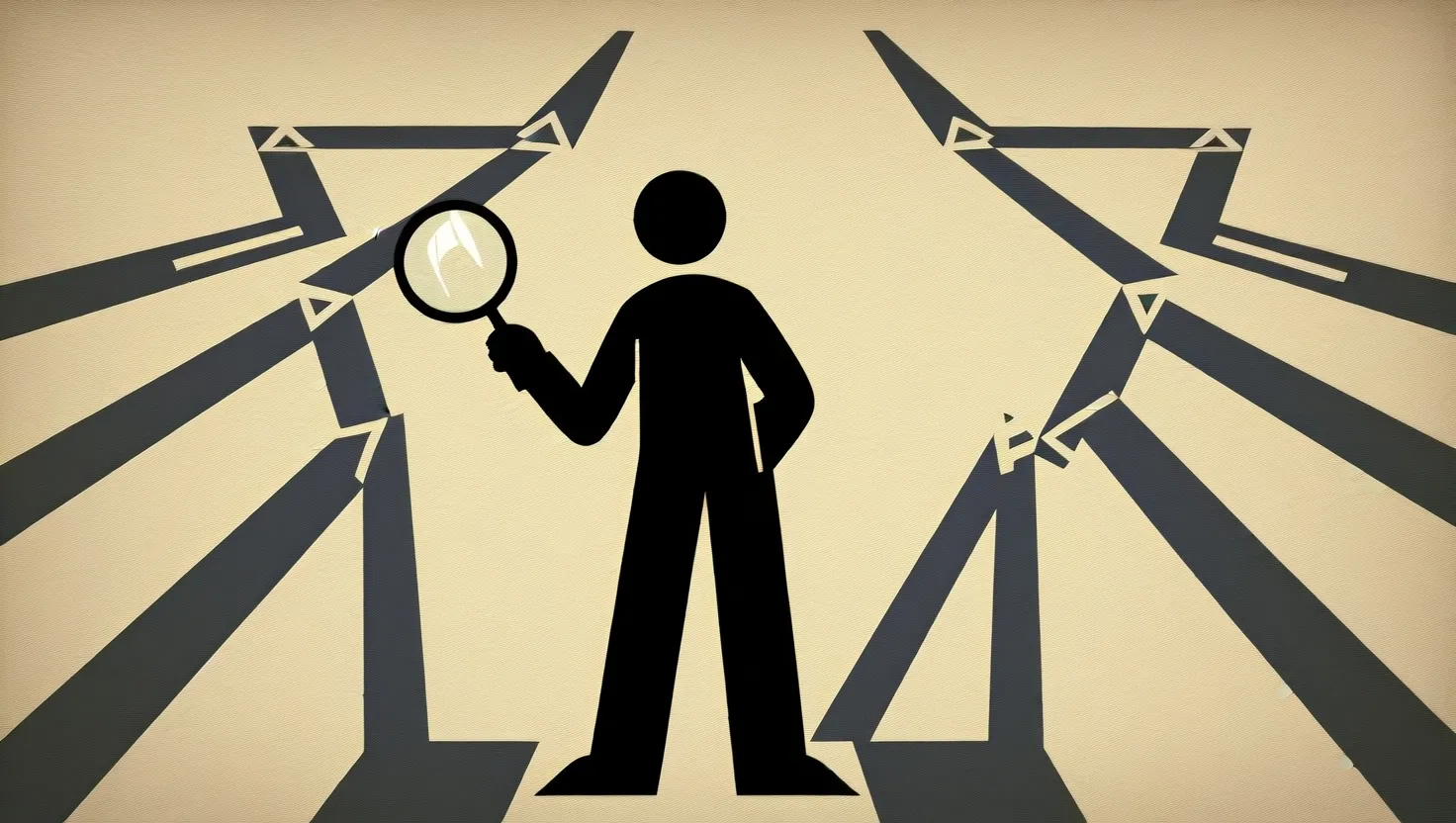When it comes to building wealth, the conventional wisdom often revolves around saving diligently, investing wisely, and waiting patiently for the fruits of your labor to mature. However, what if this slow and steady approach is not the only, or even the best, way to achieve financial freedom? This is where the concept of the "Fastlane" comes into play, a philosophy that challenges traditional norms and offers a more dynamic and accelerated path to wealth.
The Critique of the Slow Lane
The slow lane, as it's often called, is the traditional route to wealth that involves a steady job, meticulous saving, and long-term investments. While this method can provide a sense of security and stability, it often leads to a lifetime of financial mediocrity. Imagine spending decades of your life working a 9-to-5 job, only to retire with a modest nest egg that barely covers your living expenses. This is not the retirement many of us dream of.
In contrast, the fast lane approach is about creating wealth quickly, through innovative and entrepreneurial means. It's not about living a life of miserly frugality or waiting for compound interest to do its magic over decades. Instead, it's about leveraging your time, skills, and resources to build scalable systems and businesses that generate wealth independently of your direct involvement.
The Fastlane Mindset
At the heart of the fast lane philosophy is a mindset shift. It's about moving from a consumer mentality to an entrepreneurial one. This means focusing on high-impact actions, creating value, and solving real-world problems. The fast lane is not just a path; it's a way of thinking that emphasizes speed, magnitude, and leverage in wealth creation.
For instance, consider the difference between working a job where your income is directly tied to your time, versus building a business that can generate revenue without your constant involvement. The former limits your earning potential to the hours you work, while the latter opens up the possibility of exponential growth and financial freedom.
Wealth Equation: Speed, Magnitude, and Leverage
The wealth equation, as outlined in the fast lane philosophy, is built around three key elements: speed, magnitude, and leverage. Speed refers to the rate at which you can accumulate wealth. Magnitude is about the scale of your wealth-building efforts. Leverage involves using resources and systems to multiply your efforts.
To illustrate, starting a successful online business can be a prime example of leveraging these elements. You can scale your business quickly (speed), reach a large audience (magnitude), and use automation and outsourcing (leverage) to manage and grow your operations without being directly involved in every aspect.
The Three Financial Roads
The journey to wealth can be visualized as three distinct roads: the Sidewalk, the Slow Lane, and the Fast Lane. The Sidewalk represents a consumer mindset, where individuals spend more than they earn and often find themselves in debt. The Slow Lane is the traditional employment path, where people rely on jobs and long-term investments for wealth.
The Fast Lane, however, is the entrepreneurial and innovative route. It's for those who are willing to take calculated risks, create value, and build scalable businesses. This road is not for the faint of heart, but it offers the potential for exponential growth and financial freedom at a much younger age.
Unconventional Wealth-Building Strategies
One of the most compelling aspects of the fast lane approach is its emphasis on unconventional strategies for wealth creation. This involves thinking outside the box and leveraging modern opportunities such as the internet and technological advancements.
For example, consider the story of someone who starts a successful e-commerce business. Instead of following the traditional advice of saving and investing in mutual funds, this individual focuses on creating a scalable online store that can reach a global audience. By leveraging social media, digital marketing, and automation, they can build a business that generates significant revenue without being tied to a specific location or time.
The Real Law of Wealth
The real law of wealth, according to the fast lane philosophy, is about creating value. The more value you create for others, the more wealth you generate. This is a stark contrast to the traditional advice of relying on jobs or investments alone.
To create value, you need to solve real-world problems or meet genuine needs in the market. This could be anything from developing a new product or service to offering a unique solution that improves people's lives. By focusing on value creation, you position yourself to attract customers, build a loyal following, and ultimately generate significant wealth.
The Importance of Mindset and Self-Discipline
Achieving financial freedom through the fast lane requires more than just a good idea or a bit of luck. It demands a strong mindset, self-discipline, and personal growth. You need to manage your habits, actions, and mindset to stay focused and driven.
Self-discipline is crucial because it allows you to make informed financial decisions and avoid sabotaging your future through overspending or accumulating debt. It's about taking responsibility for your financial choices and positioning yourself to take advantage of opportunities as they arise.
Building Scalable Businesses
A key component of the fast lane is building businesses that can scale efficiently. This means creating systems, products, or services that can generate revenue without your constant involvement. It involves identifying high-barrier-to-entry ventures that meet real needs in the market and leveraging technology, outsourcing, and automation to speed up your journey to wealth.
For instance, a software developer might create an app that solves a common problem for users. By automating the sales and support processes, they can scale the business quickly without being directly involved in every transaction.
Real-Life Applications and Success Stories
The fast lane philosophy is not just theoretical; it has been applied successfully by many entrepreneurs. There are numerous stories of individuals who transformed their financial destinies by embracing this approach.
Consider someone who starts a side business while still working a full-time job. As the business grows, they can eventually leave their job and focus on scaling their venture. This could involve hiring a team, outsourcing certain tasks, and using technology to manage operations. The result is a business that generates significant income and provides the freedom to live a rich and fulfilling life.
Combining Strategies for Maximum Impact
While the fast lane approach is often contrasted with the slow lane, it's not necessarily an either-or situation. Many people find success by combining elements of both strategies.
For example, someone might invest in index funds as part of their long-term wealth retention plan while also starting a side business to accelerate their wealth creation. This hybrid approach allows them to mitigate risks and maximize their potential for financial growth.
Conclusion
The journey to financial freedom is not a one-size-fits-all proposition. While traditional advice can provide a sense of security, it often leads to a lifetime of mediocrity. The fast lane approach, with its emphasis on entrepreneurship, scalable systems, and value creation, offers a more dynamic and accelerated path to wealth.
It's about changing your mindset, adopting a new playbook, and taking strategic, calculated risks. It's about creating value, solving real-world problems, and building businesses that can generate wealth independently of your time.
Whether you're an aspiring entrepreneur or someone looking to break free from the conventional path, the fast lane philosophy offers valuable insights and actionable strategies. It's a call to action, urging you to take control of your financial destiny and drive down the expressway to extraordinary wealth. So, are you ready to hit the fast lane and crack the code to wealth and living rich for a lifetime?






